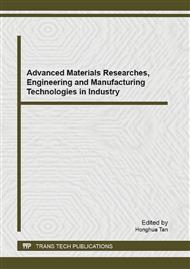p.978
p.982
p.987
p.991
p.997
p.1002
p.1006
p.1011
p.1017
Game Analysis on the Shareholders, the Manager and the Auditor in Equity Incentive Process
Abstract:
Equity incentive is a two-edged sword. In this paper, a three party game model among shareholders, the manager and auditor is built to study the equity incentives negative effects. The results are: the probability of the manager and the auditors collusion to manipulate accounting information is negative connected with the shareholders punishment, and is positive connected with the monitoring cost. Shareholders should improve the technical ability and measures to punish the manager and auditor heavily when they collude to manipulate financial information; Shareholders and the regulatory agencies should give no chance to the manager and the auditor to obtain extra income from accounting information manipulation as much as possible.
Info:
Periodical:
Pages:
997-1001
DOI:
Citation:
Online since:
September 2013
Authors:
Price:
Сopyright:
© 2013 Trans Tech Publications Ltd. All Rights Reserved
Share:
Citation:


